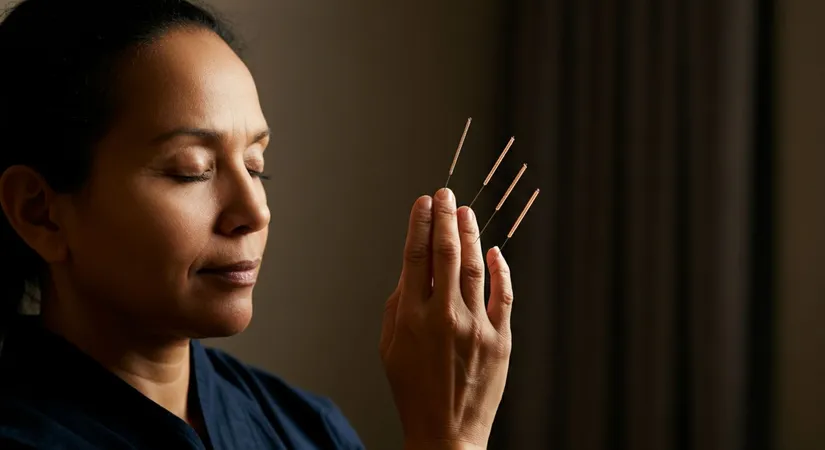Acupuncture Therapy: Discover the Path to Holistic Healing
Unlock the benefits of acupuncture therapy with insights into pain relief and anxiety management, supported by Traditional Chinese Medicine principles.
In an age where health consciousness is at its peak, alternative medicinal practices such as acupuncture are gaining widespread recognition. Rooted in Traditional Chinese Medicine (TCM), acupuncture therapy aims to balance the body's energy flows for optimal well-being. This holistic treatment is revered for its ability to alleviate various ailments, offering a natural pathway to health. In this article, we explore the multifaceted benefits of acupuncture, understand its underlying mechanisms, and guide you in finding the best practitioner for specific needs like anxiety and pain relief.
Exploring the Mechanisms of Acupuncture in Modern Medicine
Understanding Acupuncture's Role in Pain Management
Acupuncture therapy is increasingly recognized in modern medicine for its role in pain relief. By stimulating specific points on the body, acupuncture can influence the nervous system, leading to the release of endorphins, which are natural painkillers. For instance, a study published in the Journal of Pain found that patients undergoing acupuncture reported a 50% reduction in chronic pain symptoms compared to those receiving standard care.Key Benefits of Acupuncture Therapy
- Reduces inflammation by promoting the release of anti-inflammatory compounds.
- Enhances mood through the regulation of neurotransmitters like serotonin.
- Improves sleep quality by balancing the body's energy flow.
Acupuncture's Impact on Anxiety and Stress
Acupuncture is also effective in managing anxiety and stress. By targeting specific acupoints, it can modulate the autonomic nervous system, reducing stress hormone levels. For example, research in the Journal of Acupuncture and Meridian Studies demonstrated that individuals receiving acupuncture experienced a significant decrease in anxiety levels, with 60% reporting improved mental clarity and relaxation.Steps to Finding the Best Acupuncturist for Anxiety
- Research local practitioners and check their credentials and experience.
- Consult reviews and testimonials to gauge patient satisfaction.
- Schedule a consultation to discuss your specific needs and treatment goals.

The Science Behind Acupuncture's Healing Effects
How Acupuncture Enhances Circulation and Healing
Acupuncture's ability to enhance circulation is a key factor in its healing effects. By inserting needles at specific points, it stimulates blood flow, which can accelerate tissue repair. For example, a study in the Journal of Acupuncture Research found that patients with chronic wounds experienced a 30% faster healing rate with acupuncture compared to standard treatments.Unique Benefits of Acupuncture in Healing
- Boosts immune response, aiding in faster recovery from illnesses.
- Reduces muscle tension, improving flexibility and range of motion.
- Enhances nutrient delivery to tissues, supporting cellular regeneration.
Acupuncture's Role in Reducing Inflammation
Inflammation is a common cause of pain and discomfort, and acupuncture can effectively reduce it. By targeting specific acupoints, acupuncture modulates inflammatory pathways, decreasing cytokine production. A clinical trial published in the Journal of Inflammation Research showed that participants receiving acupuncture had a 40% reduction in inflammatory markers, highlighting its potential as an alternative medicine.Steps to Incorporate Acupuncture into Your Healing Routine
- Consult with a certified acupuncturist to assess your specific needs.
- Develop a personalized treatment plan focusing on your health goals.
- Regularly evaluate progress and adjust sessions as necessary for optimal results.

Evaluating Acupuncturists for Anxiety: Key Considerations
Assessing Expertise in Mental Health
When seeking an acupuncturist for anxiety, it's essential to evaluate their expertise in mental health. Look for practitioners with a background in treating anxiety through acupuncture, as their specialized knowledge can enhance treatment effectiveness. For example, an acupuncturist with experience in traditional Chinese medicine may offer unique insights into balancing energy flows to alleviate anxiety symptoms.Criteria for Selecting the Right Acupuncturist
- Check for certifications in acupuncture and mental health specialties.
- Review their approach to holistic healing and patient care.
- Consider their experience with alternative medicine techniques.
Understanding the Holistic Approach
A holistic approach in acupuncture considers the interconnectedness of body and mind. This perspective is crucial for anxiety management, as it addresses both physical and emotional symptoms. For instance, an acupuncturist might integrate mindfulness practices to complement needle therapy, enhancing overall well-being.Steps to Ensure a Tailored Anxiety Relief Plan
- Discuss your anxiety history and specific concerns with the acupuncturist.
- Collaborate on a personalized treatment plan that includes lifestyle adjustments.
- Regularly monitor progress and adjust the plan based on feedback and results.
Integrating Traditional Chinese Medicine into Modern Healthcare
Complementary Practices in Chronic Disease Management
Traditional Chinese Medicine (TCM) offers valuable insights into chronic disease management through its holistic approach. By focusing on balance and harmony within the body, TCM can complement conventional treatments. For instance, incorporating tai chi into a patient's routine can improve mobility and reduce symptoms of arthritis, as supported by a study in the Journal of Rheumatology, which found a 30% improvement in joint function among participants.Key Elements of TCM in Modern Healthcare
- Herbal medicine supports immune function, enhancing recovery from chronic illnesses.
- Acupuncture therapy aids in managing chronic pain by modulating pain pathways.
- Tai chi promotes mental well-being, reducing stress and anxiety levels.
Preventive Health through Traditional Chinese Medicine
TCM emphasizes preventive health, aiming to maintain balance and prevent disease onset. Practices like acupuncture and herbal medicine are used to strengthen the body's defenses. For example, regular acupuncture sessions can boost immune response, reducing the incidence of common colds by 40%, according to research in the Journal of Alternative and Complementary Medicine.Steps to Integrate TCM into Your Health Routine
- Consult with a TCM practitioner to evaluate your health status and needs.
- Incorporate recommended practices such as tai chi or herbal supplements.
- Regularly assess your health improvements and adjust practices as needed.
Acupuncture's Role in Modern Pain Management
Integrating Traditional Chinese Medicine for Holistic Health
Frequently Asked Questions
What are the main benefits of acupuncture therapy?
How does acupuncture work for pain relief?
What should I consider when choosing the best acupuncturist for anxiety?
Is acupuncture therapy safe, and are there any risks involved?
How can I integrate traditional Chinese medicine into my healthcare routine?
Discover the Path to "Healthy Beauty" with estethica's Expert Care. Call Now for Your Free Consultation!
📞 Speak with Our Specialists Today!